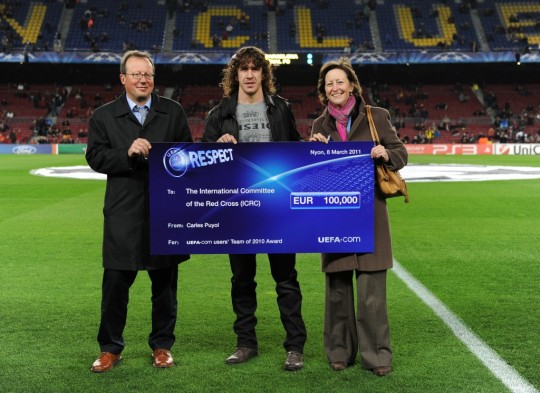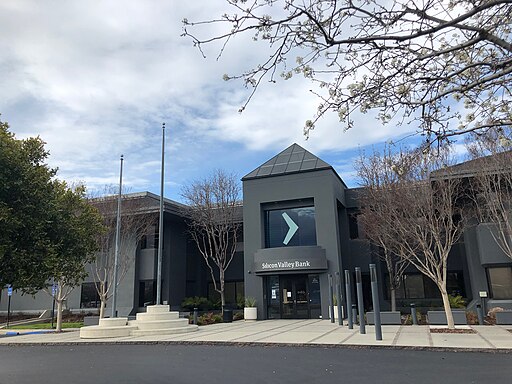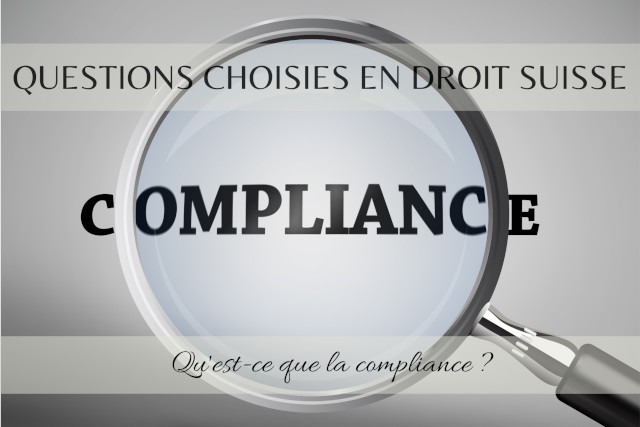
The International Committee of Red Cross (ICRC) is probably one of the best known worldwide humanitarian organizations. It assists people affected by armed conflicts, providing food distribution and other basic necessities for survival. It also endeavours to ensure that non-combatants (e.g. civilians, prisoners of war, etc.) are protected. These core activities require significant financial resources for their implementation.
This is the second article from an interview with Helen Alderson, Director of Financial Resources and Logistics. It provides a great opportunity for highlighting her career path, the perspective from headquarters, with specific focus on fundraising and financial management, as opposed to the field scope of work. The first article by Caroline Tully gave insights into the ICRC as a humanitarian organization, what it has in common with the private sector, human resource and logistics management.
Who is Helen Alderson?
For most people, and especially for young graduates, a major life challenge is making the right career choice. For Ms. Alderson, it was no different. After studying Political Science and International Relations, her first professional humanitarian experience was with UNICEF in Chad. Naturally afterwards, with her increasing interest in humanitarian and emergency-related work, she was inspired to join an organization with an international reputation for effectiveness and quality humanitarian action. The ICRC was at the top of her list of target organizations for her next career move.
She was 26 years old when she first joined the ICRC. For about 15 years, she worked both at Headquarters and in the field, including in Asia on restoration of family links to support Cambodian refugees, Vietnamese Boat People, and she carried out protection work in prisons in the Middle East.
Ms. Alderson then left the ICRC in 2000 and spent 10 years with various organizations in senior positions. She worked first with the Ethos Foundation, composed of 140 pension funds striving to raise public awareness in the field of socially responsible investment. In 2002, she moved to the World Heart Federation where she successively took up the positions of Director of Development, Chief Operating Officer, and finally, CEO. Ms. Alderson was also able to complete an MBA to accelerate her professional development.
These few experiences outside of the ICRC provided an opportunity for her to gain another perspective that one can only get from outside the organization. In her own words: “...that was enriching for me. Not only did I do things I wouldn’t have done with the ICRC, but also it enabled me to have an outside view, an understanding of other organizations, which is always helpful.”
Ms. Alderson re-joined the ICRC in 2010 to take up a senior management position. Prior ICRC experience and her background as CEO of another organization were some of the important criteria for getting the job. Now a member of the Directorate (Management Executive Team) at the ICRC, Ms. Alderson realizes more than ever the importance of her other positions. “I have to make sure that I play my role in terms of providing appropriate support and information, and making sure the right decisions are taken from a business point of view.”
Role and responsibilities
Ms. Alderson provides oversight for the finance, logistics and fundraising sections based in Geneva, as well as for a Shared Service Centre in Manila. The department also oversees a small sustainable development unit based in Geneva and Nairobi. It is essential to raise the necessary funds to enable the organization to carry out its activities, and spend these funds effectively. “We need to make sure we get the money we need, spend it wisely, purchase and transport the goods needed for victims of conflict and other situations of violence,” she said.
The changing face of fundraising: challenges and successes
ICRC activities are essentially funded by governments (>90%), supplemented National Red Cross and Red Crescent Societies and by private donors. Humanitarian needs are growing, and the ICRC has increased its budget over the decades.
According to Ms. Alderson, the fundraising model is changing and the ICRC needs to fund its response to high-profile emergencies as well as protracted conflicts that have been going on for decades and are often out of the media’s eye. The ICRC and other humanitarian organizations are very dependent on a small number of donors, and so while needs are growing, organizations are competing for limited resources from the same donors.
When Ms. Alderson joined the ICRC, there had been very limited investment into fundraising from private sources. Unlike government fundraising, which is more standardized and process-oriented, the nature of private fundraising is very different, more linked to marketing and communications. The decision was taken to invest more in order to receive support from private donors.
“Even though the ICRC's fundraising strategy has been successful for the last 10 years,” Ms. Alderson asserts, “the world around us is changing. It is crucial to diversify funding sources, with special attention to the potential from private donors and governments from emerging countries.” In fact, some donors prefer to provide direct budget support to countries affected by crises, instead of channelling aid through humanitarian organizations. However, regardless of the channel used for the humanitarian aid, donors need to ensure that the available resources are used effectively and with maximum value for money and impact.
ICRC has its own planning, operational processes, reporting and auditing procedures that might be different from those of donors. Ms. Alderson is responsible for this as well: “…my team and I need to constantly align with various regulatory mechanisms and try to ensure that donors accept our reporting procedures, although this is not always possible.” One can imagine the amount of work required to produce different reports for different potential donors, and the time it takes to do so.
Profiles and experience required to join the ICRC
In the past, Swiss citizenship was required for joining the ICRC. Today, that is no longer relevant. The emphasis is now on the ability to accomplish the mission entrusted. Human capital is the major success factor for implementing ICRC programs on the ground. Indeed, there is need to find the right balance between diversity, leadership skills and to seek the highest possible level of professionalism for the organization to be able to deal with complex contexts.
What is the profile and experience required? According to Ms. Alderson, “It depends on the kind of job one is looking for. The people we recruit centrally to go out to the field as ‘delegates’, need to have at minimum a university degree, 2-3 years of experience and they need to be older than 25 or 26 years.” There are also specific jobs, such as in the finance unit, where chartered accountants, IFRS or internal control specialists are needed. “For private fundraising, we are also looking for specialists,” Ms. Alderson continued. “There is a market for these specialists, and we benchmark for salaries with our friendly competitors such as UNICEF and UNHCR.”
Fundraising from governments is performed by field staff who have been involved in management. They are often people who have worked their way up through the ICRC in generalist positions as part of their career path.
“We have an ongoing recruitment process for field positions and we have specific recruitment for specialized functions,” Ms. Alderson confided, adding that the process is really a mixture. The recruitment process is conducted both in Geneva and in various countries for national staff. Expatriate field staff may be hired from Geneva and deployed in various countries. For mobility purpose, they may come back to Geneva for a while or move to other regions or countries.
The ICRC needs to have the right staff in the right place. Ensuring that, when the organization needs to respond to multiple emergencies at the same time, is not easy. With its staff, there is an emergency pool who are ready to leave at any time within 24 hours. They can be residents or expatriates. “The secret is to manage the talents, to be able to retain them and to know where they are. It can be difficult for an organization that has 13,000 employees to know where the competencies are,” Ms. Alderson emphasized, noting that it has become more and more challenging to retain good staff.
Future of the department?
When asked this question, Ms. Alderson replied "More and more reporting,” and laughed. Jokes aside, she concluded by stating her vision: “I think the future will probably become more challenging due to unpredictability of needs, of funding and highly demanding regulatory issues. We need to continue to be the enabler, and to anticipate all the various complexities. My department has a major role to play in optimizing business processes and the performance of the organization in terms of getting the best bang for our buck. It is about us making sure we are being the most cost effective possible. This is very much what our responsibility is."
Sources:
http://www.icrc.org/fre/resources/documents/misc/5fzf8y.htmhttp://www.icrc.org/fre/resources/documents/article/editorial/02-04-humanitarian-action-yves-daccord.htm
http://www.icrc.org/fre/assets/files/review/2011/irrc-884-mcgoldrick-fre.pdf





